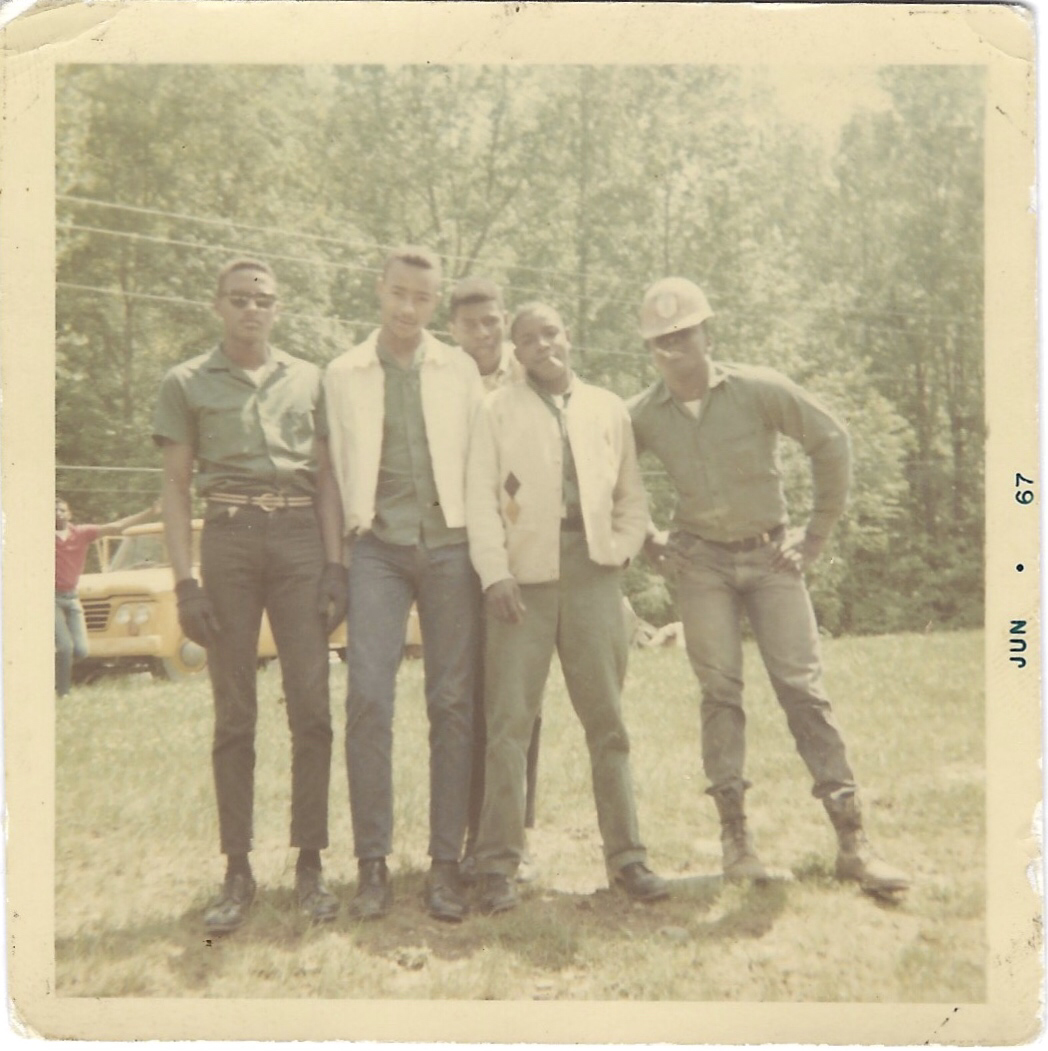- BlackVoter.Org
- Posts
- BlackVoter.Org
BlackVoter.Org


Discover the rich tapestry of African American experiences in Great Smoky Mountains National Park! Since 2018, the park has embarked on a journey to honor the profound contributions and stories of African Americans in the Smoky Mountains and the surrounding Appalachian communities. Through engaging storytelling, research, and community collaboration, the project sheds light on a diverse range of topics including labor, family life, military service, and entrepreneurship, echoing tales of resilience and cultural richness.
This initiative aims to not only preserve these invaluable stories but also to inspire visitors and deepen their understanding of our collective heritage. Join in this captivating exploration by sharing your own stories or experiences! Experience the Smokies like never before and embrace the diverse narratives that have shaped this stunning landscape.

In a world striving to erase uncomfortable truths, Brazil's vibrant history of resistance shines through, particularly the legacy of Palmares. Founded by escaped enslaved Africans in the 17th century, Palmares thrived as a powerful community that defied both Portuguese and Dutch forces.
Despite attempts to suppress its story—like the recent cuts to African American history funding in the U.S.
—the memory of figures like Zumbi, Palmares' defiant leader, remains resilient. As activists across Brazil reclaim and honor this past, they challenge oversimplified national narratives built on heroism while sanitizing the brutality of slavery.
Zumbi's story, marked by courage and resilience, continues to inspire movements for justice and remembrance. Brazil illustrates that while efforts to rewrite history may emerge, the truth about slavery and resistance will endure, serving as a guiding light for both current and future generations to confront the legacies of the past.
In a notable shift in Oval Office decor, President Trump has removed the bronze bust of Dr. Martin Luther King Jr.
, originally placed there by President Obama, and replaced it with a return of Winston Churchill's bust. The King bust has been relocated to Trump’s private dining room, where he holds meetings and meals, marking a significant change in how the office honors historical figures.
The removal comes after a decade of King's prominent presence in the Oval Office, which began in 2009. This move reflects Trump’s commitment to classic decor, featuring gold accents and a framed Declaration of Independence.
Meanwhile, the National Association for the Advancement of Colored People announced that, for the first time in 116 years, the sitting U.S.
president will not be invited to their National Convention, highlighting the ongoing complexities of race and representation in American politics.

In a historic move, the NAACP has announced that it will not extend an invitation to a sitting president for the first time in its 116-year existence, skipping President Trump for its upcoming national convention. NAACP President Derrick Johnson emphasized that the decision stems from Trump’s persistent attacks on civil rights and marginalized communities.
The organization is particularly disheartened by Trump's divisive rhetoric, exemplified during his controversial appearance at the National Association of Black Journalists' convention, where he made false claims and displayed blatant disregard for pressing issues affecting Black Americans. Tracing its inclusive history of inviting presidents from both parties, the NAACP stands firm that it cannot provide a platform to someone whose policies threaten its core mission of advancing civil rights.
As tension escalates, the NAACP remains committed to justice, making it clear they will not hand over their stage to a leader they believe undermines those values.

The article delves into America's persistent struggle with its "lost cause" narrative, a distortion of history that perpetuates racial injustice. Using powerful imagery from the 1963 Birmingham protests, it illustrates how segregationists viewed peaceful protesters with indifference, teaching future generations to embrace a twisted version of patriotism tied to white supremacy.
The author argues that ongoing efforts to erase or downplay racial history, exemplified by changes in school curricula and the glorification of Confederate figures, pose a threat to social progress and understanding. Historian Richard Slotkin warns that this distortion fosters a mix of American exceptionalism and bigotry, reminiscent of early fascism.
As society faces renewed calls for "law and order" and voter suppression tactics, the article urges us to remember the brave youths who confronted violence during the Civil Rights Movement, highlighting that the lessons of history remain eerily relevant today.

In a powerful call to action, California Secretary of State Dr. Shirley Weber emphasized the critical importance of civic engagement during a recent speech in San Diego amidst rising national tensions.
Addressing a poignant backdrop marked by the recent assassinations of lawmakers, Weber expressed her dismay at the generational decline in civic knowledge, revealing that only 11% of California’s K-12 schools prioritize civic education. She announced her campaign for re-election while urging Californians to recognize their civic duties every day.
With a rich personal history tied to voter rights, Weber highlighted her commitment to safeguarding democracy against ongoing attacks on voting access. Her campaign seeks not only to secure her position but also to defend the foundational values of democracy, reminding citizens of the sacrifices made for their voting rights.
“This is not just a moment. This is our life,” she declared, rallying support for a future where civic responsibility flourishes.

Bridging the Divide: Why Black Americans Must Stand with African Immigrants Against Trump's Policies
In a compelling call for unity, Lawrence Ware addresses the growing rift between Black Americans and African immigrants, exacerbated by President Trump's recent travel bans targeting predominantly Black nations. For years, African immigrants have made condescending remarks about their American counterparts, fostering tension within the community.
However, as these communities confront potential deportation threats, the conversation shifts to solidarity in the face of discrimination. Ware argues that both groups share common experiences rooted in systemic racism and white supremacy.
To combat a divided front against such policies, honest dialogue is crucial for healing and forming alliances. The urgency of this discussion emphasizes that both communities must recognize their intertwined histories and futures, calling on Black Americans to extend their support to African immigrants at a time when unity is essential.